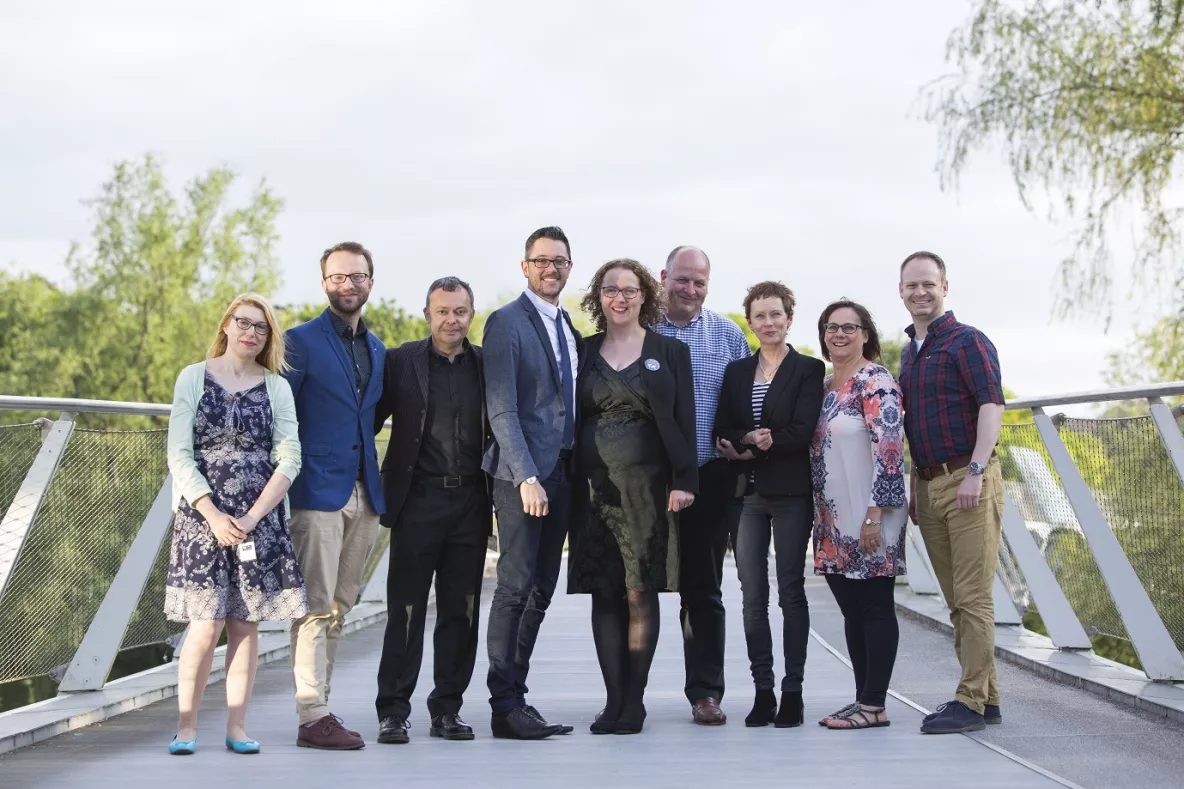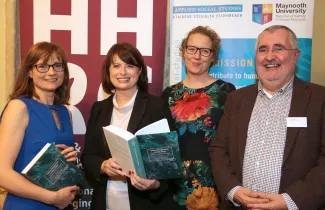
A University of Limerick (UL) School of Law lecturer was presented with a prestigious international award in the United States on Friday.
Dr Jennifer Schweppe, co-director of the International Network for Hate Studies (INHS) received the Eva Lassman Take Action Against Hate Award in Spokane, Washington.
Dr Schweppe and her colleague, Dr Walters of University of Sussex, accepted the award from the Gonzaga Institute for Hate Studies at Gonzaga University on behalf of the INHS.
Initiated in 2009 in memory of Holocaust survivor and educator Eva Lassman, the award is given for contributions to a better understanding of and combating hate.
The INHS is a cross-jurisdictional and interdisciplinary organisation that aims to facilitate the exchange of knowledge about the study of hate and hate crime.
Co-founded by Dr Schweppe and Dr Walters in 2013, the INHS is run by academics and practitioners, seeking to not only promote understanding about the root causes of hate and hate crime, but to understand how it can be combated in society.
Presenting the award and recognising the work of the INHS, Kristine Hoover, Director of the Gonzaga Institute stated: “Hate has no borders, and with the proliferation of online sources and resources, its study needs a multidisciplinary and international focus as well as one which examines local and jurisdictionally specific causes and responses”.
Accepting the award, Dr Schweppe said: “I am both honoured and humbled to receive this award on behalf of the International Network for Hate Studies. The philosophy underlying the network is to break down disciplinary and practice silos in an effort to challenge and combat hate in partnership globally. We work with our advisory board which comprises of academics, practitioners, and policy makers across the globe to understand hate crime, as well as share practices across communities”.
In the same week, Dr Schweppe, along with her UL colleague Dr Amanda Haynes and Maynooth University’s Seamus Taylor launched their new book on hate crime. Both Dr Schweppe and Dr Haynes are co-directors of the Hate and Hostility Research Group at UL. Critical Perspectives on Hate Crime – Contributions from the Island of Ireland, was launched on Wednesday, October 18.
It explores the manner in which hate crime presents itself north and south of the border, as well as presenting challenges experienced by practitioners and policy makers in addressing hate crime.
The book also presents an account of the manner in which hate crime is experienced by black and Muslim communities and, for the first time in Ireland, the experiences of disabled people, sex workers, members of the LGBT community, and members of Traveller and Roma communities.
Launching the book at the Royal Irish Academy, Emily Logan, Chief Commissioner of the Irish Human Rights and Equality Commission said: “It is not the responsibility of victims to avoid being targets of hate crime; it is the responsibility of governments to send a clear message to society that hate crime is not tolerated.
“This timely publication provides a valuable insight into the dynamics of hate crime in Ireland, and is a valuable contribution to the current debate on modernising Ireland’s legal and policy framework to address hate crime,” she continued.
Dr Schweppe said: ‘‘This volume will be of value not only to scholars, activists and policy makers who are engaged with hate crime in Ireland, but also to international stakeholders who we believe will find much of interest here. The global problem of hate crime is assessed through an Irish lens, an issue which is of international concern given the evidenced rise of hate crime in the UK post-Brexit, and in the US in the aftermath of the election of Donald Trump”.
Dr Amanda Haynes, senior lecturer in Sociology at UL said: “Hate crime is part of the lived reality of contemporary Irish society, but the concept has not historically been recognised the institutions of our State. This book addresses that disjuncture. The chapters in this volume bring us face to face with the experience of hate crime victimisation in Irish society, and critically analyse the manner in which our state and civil society organisations respond to those experiences”.
Seamus Taylor, Department of Applied Social Studies, Maynooth University, said: ‘‘This book addresses a gap in our knowledge base concerning Ireland and contributes to debates with global relevance. This first comprehensive critical account of hate crime in the Irish context provides a unique contribution to the field of hate studies and activism with a number of contributions evidencing the need for hate crime legislation”.
